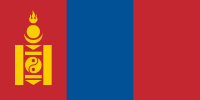Total population
34000
Literacy rate
Smart phone use frequency
Majority of Residents
3. Majority of residents
Smart phone primary users
Mobile broadband coverage
Strong
4. Strong
Mobile internet use frequency
Mobile internet primary users
Main purpose(s) of internet use by village residents (at least once a month)
45% of villagers use internet for social media, updating their information and submitting requests on government applications for government support services
Main social medial tools (or platforms) used by village residents
Social media platforms use for marketing, commercial, data exchange or other services or types of activities (what, by whom and frequency)
Main livelihood occupations (crop types, fish, livestock, agrifood, etc.) practiced by village residents
Main farming activities
Farmer (potatoes, carrots, onions, fodder)
Livestock
Main agri food activities
Other livelihood activities (outside farming)
Digital solutions available (or used) in Village (or by local residents)
Animal Identification and Registration System (AIRS)
Featured Digital Solution
Name
Animal Identification and Registration System (AIRS)
Name of Lead Developer/supplier (and partners)
Standard and Trade Development Facility (STDF), French Livestock Institute (IDELE) and FAO Mongolia
Lead developer category
Multi-partners
Multi-partners
Delivery type
Mobile app
Ear tags, QR scanners and codes, mobile app
Primary users
Farmers (livestock)
Number of users/subscribers (at village/local area level)
Development stage category and description
Commercial stage (widespread use nationally)
Commercial stage (widespread use nationally)
Digital category
Digital Agrifood Services
Indicate if the highlighted "top digital solution" is linked to (or part of) government, private, or multi-partner initiative, project or programme
Government and FAO initiative
Main issues, needs, or priorities faced (or expressed) by villagers in accessing, and/or using digital solutions, services, or innovations (examples: reliability/strength/slow internet connection; access through local language; lack of adatpation to needs; urgently needed services not available, accessible, affordable, etc....)
Other relevant information, data, statistics, links, application history etc.
Improving the animal identification and registration system has multiple benefits for Mongolia such as improving animal quality and gene pool, increasing productivity, expanding market access through the traceability systems, enhancing animal health, and decreasing animal theft. Implementing AIRS, however, is a long-term investment that requires buy-in from the public and private sectors. In Mongolia, good collaboration across central government departments, sub-national stakeholders and development partners was the key to connect and learn from related work, promote coherence and link up various information systems

 Mongolia
Mongolia